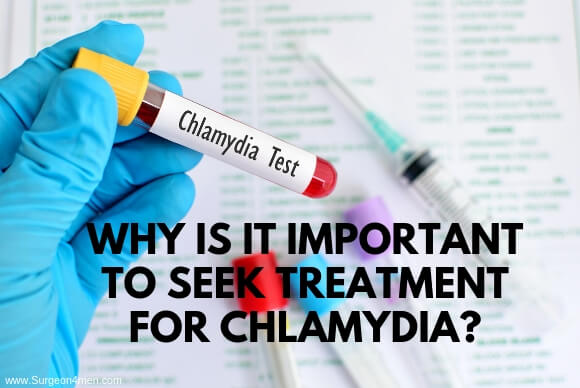Why Is It Important To Seek Treatment For Chlamydia?
What is Chlamydia?
The Chlamydia is the most widespread and commonly reported sexually transmitted infection (STI) which is caused by bacteria – chlamydia trachomatis. According to latest statistics, every year about 1.2 million peoples are diagnosed with Chlamydia in America. The most unfortunate part of this infection is the fact that most infected people don’t even know they are suffering from this infection. As usually it doesn’t show any symptoms. Chlamydia can be easily treated with antibiotics.
Causes of Chlamydia:
Chlamydia trachomatis bacteria resides in the uterus, cervix, vagina, urethra or rectum. It usually affects the people who are sexually active and engage in unprotected sex. It can easily be transmitted from one person to the other through sexual intercourse.
It can also be transmitted by just touching the genitals or during oral sex. Sometimes the newborn babies also get the infection from their mother.
What are some symptoms of Chlamydia?
As discussed earlier Chlamydia doesn’t show any symptoms in most cases. However, some infected people may develop symptoms of Chlamydia.
Most common symptoms include bleeding between the periods, painful intercourse, pain in the pelvic region, abnormal discharge, pain while urinating, bleeding after sex, inflammation of testicles in males etc.
Treatment:
It is treated with antibiotics like Doxycycline and Azithromycin. The dose is dependent upon the complexity of disease. Mostly 250 mg of Azithromycin is given for 4 to 5 days and 100 mg Doxycycline is given 2-3 times daily.
The people who are diagnosed with Chlamydia are also advised to check for Gonorrhea as both infections can occur at the same time. And most of the symptoms are same for both sexually transmitted infections.
What are the complications and why is it important to seek immediate medical treatment?
There are many complications that can occur if this infection is not treated in time.
Complications in women:
If this infection remains untreated for a longer period of time then it will spread to other reproductive organs like fallopian tubes, uterus etc. to cause permanent damage. Untreated Chlamydia can lead to pelvic inflammatory disease that damages or block fallopian tubes and results in infertility in women. Besides this, PID can also causes ectopic pregnancies, miscarriage, pelvic pain etc.
Other complications of Chlamydia include mucopurulent cervicitis which causes cervix swelling, yellowish discharge and painful sex and cystitis i.e. swelling of urinary bladder.
Complications in men:
The untreated Chlamydia can cause inflammation and swelling of urethritis, prostate glands and testicles and yellowish discharge from penis that leads to fertility issues and kidney problems in males.
Reactive arthritis and Reiter’s syndrome (swelling in joints, urethra and eyes) can also occur if Chlamydia is not treated in time.
Precautions:
- If a person is diagnosed with Chlamydia, they should refrain themselves from indulging in any sexual activity until this infection is cured completely.
- The people who suffer from this infection should get themselves checked after every 3 -4 months. And the sex partner of the infected individual should also be examined.
- The antibiotics course should be completed to eradicate the infection completely.
- If you have several sex partners, try to use condoms; until and unless you are not sure that he/she doesn’t have infection
- Routine checkups are necessary as this infection usually doesn’t show any apparent symptoms.

